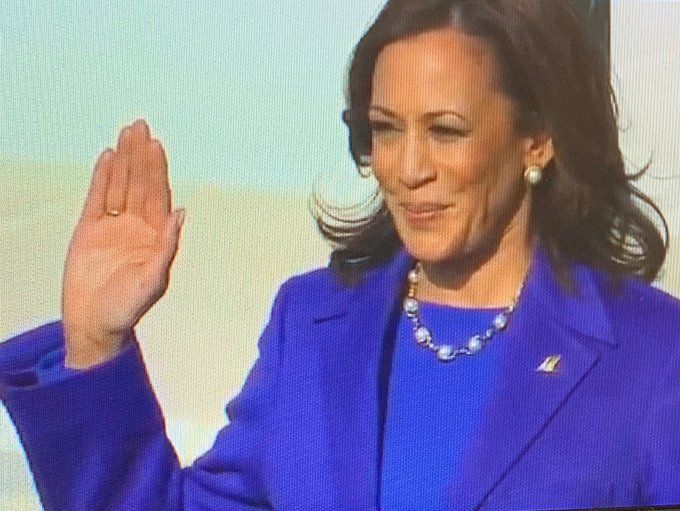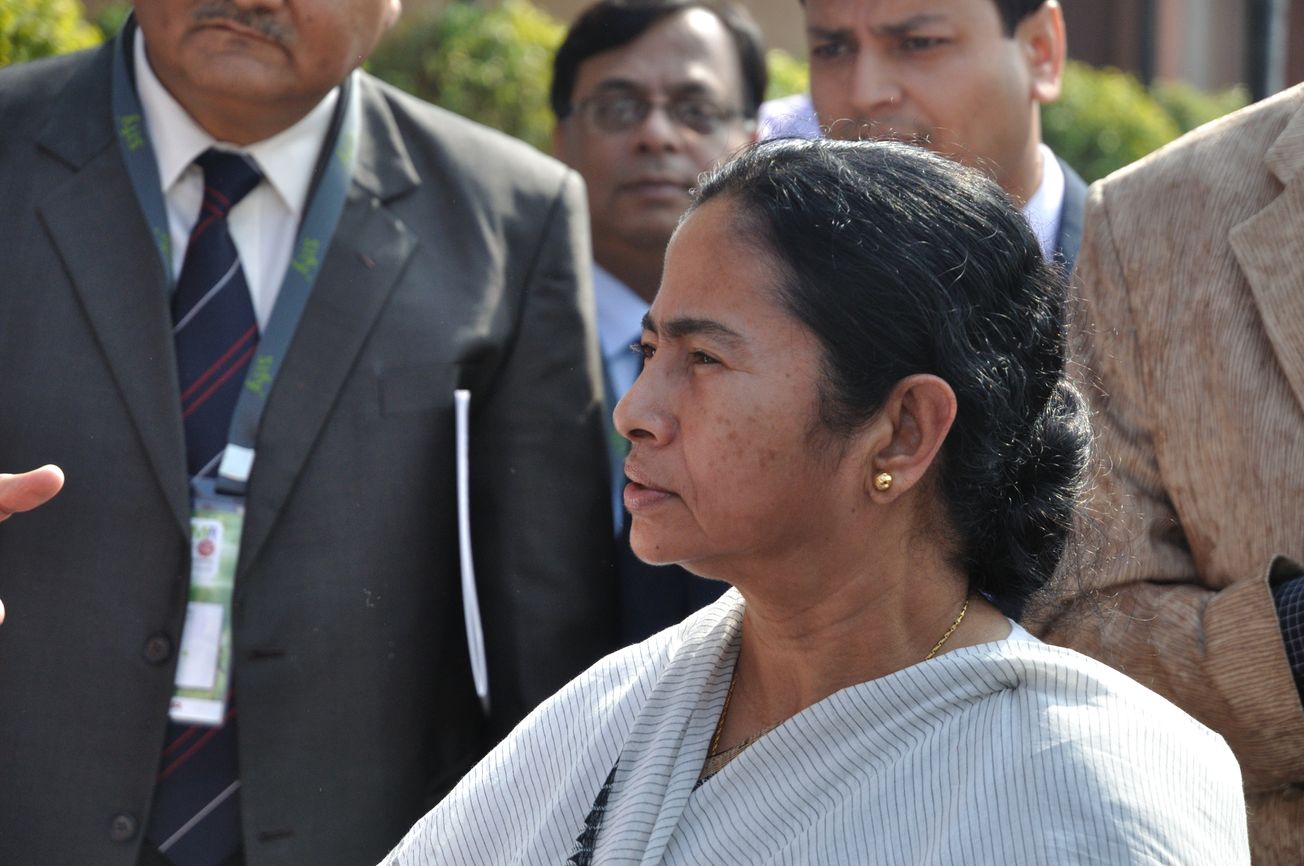Image Courtesy: Mr_D_Jack, Twitter
After some clumsy attempts at recounts, half-hearted protestations in the courts, and a tragi-comic episode in the Capitol, Donald Trump is finally out of the White House and Joe Biden is now the 46th President of the United States of America. Of more interest to Indians around the world is Kamala Harris, the first woman as well as the first Black and South Asian Vice-President, and the 20 Indian-Americans nominated in the Biden-Harris administration.
So, who are those chosen ones? Neera Tanden is probably the most well-known from this list, less for being an ex-Hillary Clinton staffer and more for being an ubiquitous Twitter “personality” which includes, among other things, sparring with graduate students, support for neocon foreign policy, hobnobbing with Netanyahu, and punching a staffer for the temerity of asking Clinton a question on her support for the Iraq war. Of higher concern is her past support for cuts to social security to reduce the deficit (a right-wing talking point that demonizes “entitlements” for the poor and middle class while maintaining tax cuts for the rich). This doesn’t necessarily mean that her views haven’t evolved since then. But austerity in the garb of “balancing” the budget and neoliberal policies disguised as improving “investor confidence” have been a much favoured approach for those who would rather pay lip service than get their hands dirty for the poor and underprivileged. Some like Dr Vivek Murthy and Mala Adiga are alums of the Obama administration or seasoned Democratic Party insiders such as Sabrina Singh and hence, familiar with the wheeling and dealing of DC.
On the positive side, it’s likely that these appointees would do a better job tackling the COVID pandemic which has ravaged the country and championing better climate change related policies. One of the Trump era’s most outrageous acts was pulling out of the (admittedly weak) Paris Agreement and rolling back already watered-down environmental regulations. Radical actions on either issue might be a bridge too far but measured steps in the right direction are a real possibility.
On the less sunny side, with many of them being career bureaucrats and ensconced in the power corridors that feminists want to dismantle, it is questionable how much they will be able to achieve. One need only look across the Atlantic to Rishi Sunak who’s the UK Chancellor of the Exchequer, equivalent to the Finance Minister. Caving in to pressure by big corporations and to maintain his credentials with the Conservative Party, Sunak has imposed austerity measures on the public sector to reduce the budget deficit, even as tax increases for the wealthy remain a contentious issue. In a similar vein, there are hopes that Bharat Ramamurti, having been a key part of shaping Elizabeth Warren’s economic policies in her 2019 presidential run, will be an advocate for progressivism in Biden’s National Economic Council. However, in the miasma of party insiders, elected politicians and unelected officials, lobbyists and donors, his influence will remain to be seen.
On foreign policy, BJP supporters looking for a staunch pro-Modi stance from the Biden administration are likely to be disappointed as are hopes from liberals that the many excesses of the same government will be openly admonished. The Indian-American nominees are all veterans of the DC establishment and unlikely to take extreme positions on national security matters. One can expect a continuation of Obama’s approach- caution mixed with calculated aggression and dinnerplate diplomacy.
Which brings us to Kamala Harris, the second-in-command of the world’s most powerful nation with immense influence to attenuate the racial, gender, and economic inequalities of the present and potentially, herald a just and fair future for all. Harris’ chequered policy record generates room for both cautious optimism and measured cynicism. Her support for $2000 COVID relief checks is countered by her coziness with Silicon Valley. She came out for single-payer Medicare for All only to backtrack later, giving muddled excuses to explain her changing stances. While much of her policy positions are center-left by American political standards, she is also known to, at times, embrace proposals which disproportionately hurt marginalized groups such as her refusal to support abolishing ICE (Immigration and Customs Enforcement). On foreign policy, while she has unequivocally condemned human rights abuses by autocratic regimes like Saudi Arabia, she voted against cuts to the country’s gargantuan defense spending and remains a firm supporter of Israel. In short, she looks poised to to back past US foreign policy doctrines (including the Bush doctrine) to maintain US hegemony. India will be given special treatment to the extent that it advances U.S. interests, specifically with regards to China.
Harris' record as a prosecutor is complicated, to say the least. Some wouldn’t hesitate in saying it is quite the opposite of what she now espouses. This is the kind of flip flop that warrants a not unreasonable suspicion that as a career politician, her social justice-oriented instincts are often tempered by the need to play the “game” and accumulate power. To repurpose ex-Treasury Secretary Larry Summers’ famous words about politicians, Harris is an insider- she is unlikely to turn against other insiders and seeks the reward of influencing people and outcomes. It would be fair to summarise her politics as that of a moderate with occasional progressive undertones. What remains to be seen is if she chooses to wield her power for a truly egalitarian agenda that centres the most oppressed of us or a more pragmatic approach, reminiscent of her days as a prosecutor.
How should feminists greet these developments? Harris might be an insider but feminists need to be inquisitive, incorruptible, and independent outsiders. While one should celebrate the rainbow cabinet and the first woman Vice-President, our standards shouldn’t be lowered and our demands cannot be diluted. It is imperative that Harris and, indeed, the entire Biden administration be held accountable for not only promises made but performances on matters of equality, justice, and survival. After all, climate change isn’t waiting for Congress to debate the Green New Deal and the endless wars in the Global South aren’t going to end themselves. Power concedes nothing without sustained, prolonged pressure and as much as Harris’s ascendance is a win for diversity, it’s her accomplishments in the Vice President’s office that will determine her legacy- is she a feminist who paved the way for those more marginalized than her or did she merely break the glass ceiling for herself and others like her?
Representation is important but representation without redistribution, recourse, and (radical) reform will degenerate into tokenism of the worst kind- where oppression is now perpetrated by oppressors who look like you. It would be easy to let ourselves be swept up in the euphoria and miss seeing what could well be a sleight of hand by the elites, designed to mimic the contours of progress while stealthily entrenching the status quo. If truth is not spoken to power, even when Kamala Harris holds it, and the hegemony of the ruling classes isn’t challenged, diversity will provide cold comfort to the marginalized and the dispossessed.










